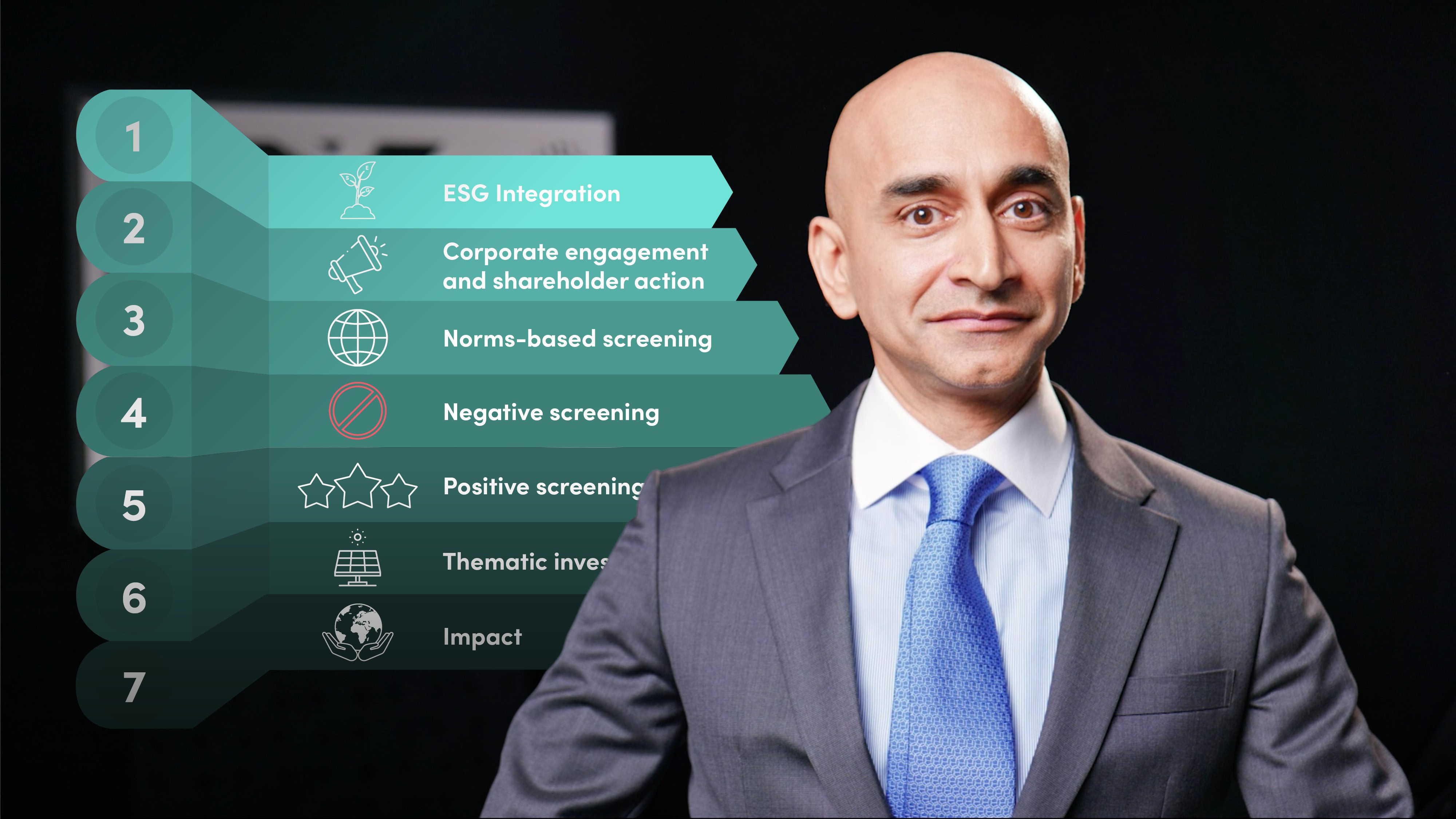
What is ESG Investing?

Arun Kelshiker
20 years: Asset management and stewardship
In this video, Arun covers the origins of ESG investing and the different types of responsible investing, which balances financial returns with environmental and social impacts. He discusses how ESG investing has evolved since the 18th century and how it gained prominence post-2008 financial crisis. He also explores seven different approaches to responsible investing, including ESG integration, corporate engagement, norms-based screening, negative and positive screening, thematic investing, and impact investing.
In this video, Arun covers the origins of ESG investing and the different types of responsible investing, which balances financial returns with environmental and social impacts. He discusses how ESG investing has evolved since the 18th century and how it gained prominence post-2008 financial crisis. He also explores seven different approaches to responsible investing, including ESG integration, corporate engagement, norms-based screening, negative and positive screening, thematic investing, and impact investing.
Subscribe to watch
Access this and all of the content on our platform by signing up for a 7-day free trial.

What is ESG Investing?
8 mins 4 secs
Key learning objectives:
Outline the origins of ESG investing
Understand what responsible investing is and the different types
Overview:
In a landmark 2015 speech, former Bank of England Governor Mark Carney highlighted the importance of ESG investing for financial stability amid climate change. ESG investing incorporates environmental, social, and governance factors in investment decision-making. Originating in the 18th century, ESG has gained mainstream attention due to regulatory drivers and initiatives like TCFD and the EU's Green Deal. Strategies include responsible, sustainable, and impact investing. Approaches involve ESG integration, corporate engagement, norms-based screening, negative and positive screening, thematic investing, and impact investing. As ESG investing gains momentum, investors must balance financial returns with environmental and social impacts.
Subscribe to watch
Access this and all of the content on our platform by signing up for a 7-day free trial.
How and when did ESG originate?
ESG investing, which incorporates environmental, social, and governance factors into investment decisions, has origins dating back to the 18th century when Quakers, Methodists and other faith groups laid out clear principles-led guidance as to which companies their followers should invest into. The practice gained momentum in the early 21st century with the 2005 "Who Cares Wins" and "Freshfields Report," leading to the launch of the Principles for Responsible Investment (PRI) in 2006.
Post-2008 Global Financial Crisis, ESG investing rose to prominence due to regulatory drivers like the Task Force on Climate-Related Financial Disclosures (TCFD) and the EU's Green Deal. TCFD has now become mandatory and enshrined in law across a growing number of countries including the UK and is a universally accepted framework for companies and investors to disclose their climate strategy and metrics.
What is responsible investing and what are the different types?
Responsible investing balances financial returns with environmental and social impacts.
Strategies include responsible investing (mitigating ESG risks), sustainable investing (pursuing ESG opportunities), and impact investing (focusing on high-impact solutions).
The Global Sustainable Investment Alliance outlines seven approaches: ESG integration, corporate engagement & shareholder action, norms-based screening, negative screening, positive screening, thematic investing, and impact investing. These strategies emphasise the importance of incorporating ethical considerations, ESG performance, and sustainable solutions in investment decision-making.
Subscribe to watch
Access this and all of the content on our platform by signing up for a 7-day free trial.

Arun Kelshiker
There are no available Videos from "Arun Kelshiker"



























